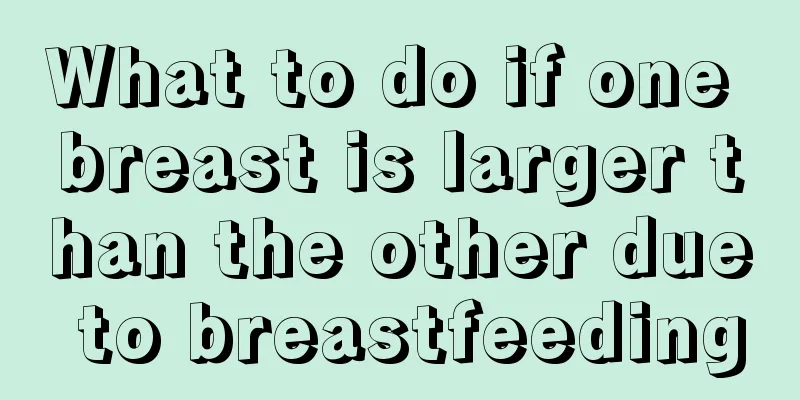What should I eat to maintain my health after hysterectomy?

|
Speaking of uterine fibroids, I believe everyone is familiar with them, especially in recent years, the incidence of uterine fibroids has been getting higher and higher. The current treatment for uterine fibroids is still mainly resection. It is understood that some patients may experience recurrence after the diseased area is removed, so some maintenance work after hysterectomy becomes extremely important. Let us learn about it below. 1. Avoid greasy food. Eating too much greasy food will lead to fat accumulation, making wounds difficult to heal and weakening resistance to bacteria. 2. After surgery, patients should increase their protein intake. Foods such as fish, meat, beans, eggs, and milk are rich in protein, which can help wound healing and increase physical strength. In terms of meat, patients can choose more fish because fish is easier to digest and absorb, but remember to eat the meat and not just drink the soup. 3. In addition, you should also eat an appropriate amount of vegetables and fruits. Because vegetables and fruits are rich in vitamins and minerals, they can help patients heal their wounds and increase their body's resistance. At the same time, pay attention to drinking more water and avoid eating foods that easily cause bloating, such as onions, cabbage, sweet olives, soy products, etc. 4. Drink more water. Drink 2000-3000cc of water every day to prevent constipation. 5. Do not eat foods that easily cause bloating: such as onions, cabbage, olives, soy products, etc. 6. Eat at regular times and in regular amounts, and do not overeat. 7. Adhere to a low-fat diet and eat more lean meat, eggs, green vegetables, fruits, etc. 8. Eat more whole grains such as corn, beans, etc. 9. Eat nutritious dried fruits often, such as peanuts, sesame seeds, melon seeds, etc. 10. The most important thing about diet after hysterectomy is to avoid spicy food, alcohol, frozen food, etc. The diet should be light, and avoid eating irritating foods such as mutton, shrimp, crab, eel, salted fish, and black fish. Avoid spicy foods and drinks such as chili peppers, peppercorns, raw onions, raw garlic, and white wine. Avoid eating foods that are hot, coagulant, or contain hormones, such as longan, red dates, donkey-hide gelatin, and royal jelly. 11. If you have anemia, eat more foods high in iron, such as pork liver, black sesame, grapes, seaweed, wolfberry, shiitake mushrooms, etc. The above dietary precautions can help patients who have undergone hysterectomy recover their health as soon as possible. For patients who have undergone hysterectomy, the general principle is that the diet must be kept light and nutritious. Of course, do not blindly eat high-fat foods in pursuit of nutrition, as that will not be good for recovery from the disease. Also, be sure to eat less cold foods and keep warm on a daily basis. |
<<: How to maintain hysterectomy
>>: Maintenance methods for hysterectomy
Recommend
If progesterone is low and there is no bleeding, it means it is a boy
Many expectant mothers are very curious about the...
Can acupuncture cure gynecological diseases?
Gynecological diseases are a relatively common di...
Are there any symptoms of fallopian tube obstruction?
What are the symptoms of fallopian tube obstructi...
What is the reason for chest shrunk? What is the reason for chest shrunk?
A woman's breasts will have a secondary devel...
Science Explains | Are sugar-free foods really "0 sugar"? Listen to what the experts say!
Although sugar substitutes are food additives tha...
What does it mean to dream of pregnancy?
Did you dream today? Is the content of the dream ...
Introduction to sexual behavior during menstruation
I believe that when it comes to sex during menstr...
Will a cesarean section cause uterine prolapse?
Caesarean section is not unfamiliar to pregnant w...
Do I need to protect the fetus after induced pregnancy?
For the sake of her own body, if a woman has ovul...
During the operation, the mother saw the operating area through the shadowless lamp and collapsed
I was on night shift on the fifth day of the Luna...
How long after episiotomy can I defecate
Some people say that when pregnant, whether choos...
Can poor sleep trigger Alzheimer's disease?
Alzheimer's disease (AD) is the fifth leading...
8 kinds of food that women should eat to replenish blood and beautify themselves
Women, due to special physiological reasons or so...
Can you take cold medicine during menstruation? You should know these things
Menstruation occurs every month in a cycle. Women...
How many months do you usually wear a belly band?
It is said that nowadays we live in a society tha...









